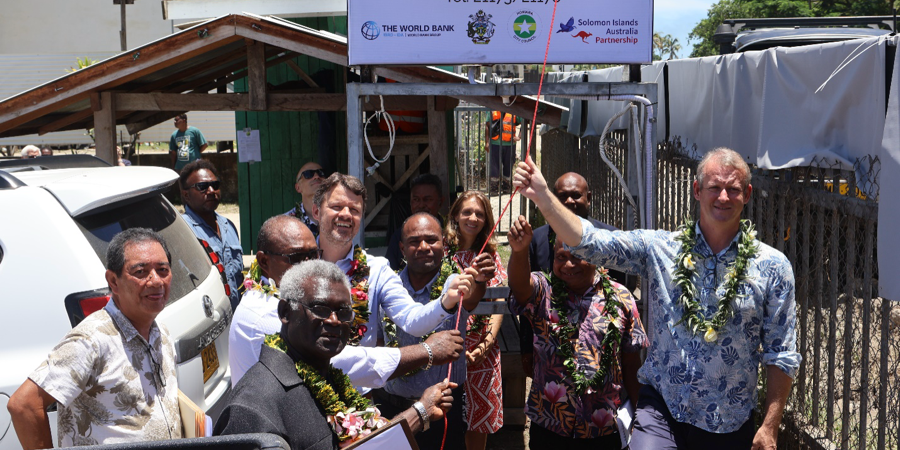The Community Access and Urban Services Enhancement (CAUSE) project has significantly impacted local communities since its inception in 2019, creating employment opportunities and improving infrastructure access in urban centers like Honiara.
Speaking at the launch of CAUSE Phase II in Honiara on Friday, Senior Economist at the World Bank, Lodewijk Smets, highlighted the project’s benefits for urban residents in the Solomon Islands.
The primary theme of the first phase of the CAUSE project was “Sustained Increase in Employment and Income Potential.”
“In CAUSE I, survey data indicated a 20-percentage-point increase in self-employment among female participants,” Smets stated.
“Formal employment also rose, with a 15-percentage-point increase among male participants and a six-percentage-point increase among both male and female participants.”
Beyond employment opportunities, CAUSE I has also significantly enhanced urban accessibility and safety.
“Our surveys indicate a 90% reduction in reported injuries due to the construction of Jacob’s ladders and footpaths,” Smets said.
“Additionally, 95% of beneficiaries reported that their roads were no longer impassable.”
Smets emphasized that such results demonstrate the effectiveness of projects like CAUSE in fostering economic benefits for urban populations across the Solomon Islands.
However, he also underscored the need for CAUSE Phase II due to the rapid population growth in urban areas.
“The population of Honiara and the peri-urban areas of Guadalcanal has nearly doubled in the past 10 years,” Smets noted.
“This makes Honiara one of the fastest-growing capital cities in the world. Rapid urbanization has placed unprecedented pressure on infrastructure and services, exacerbated by the increasing frequency and intensity of climate and weather events.”
CAUSE II aims to address these challenges by developing climate-resilient infrastructure and urban services while laying the foundations for sustainable urban management. The project will rely on community labor and national contractors to create local jobs and support communities in preparing for climate-related challenges.
Smets expressed his admiration for the Solomon Islands Government’s strong commitment to investing in human capital and improving the fiscal environment—both crucial elements in unlocking the economic potential of the country’s urban centers.
“Unlocking urban potential is a key driver for economic growth,” he added.
By AGNES MENANOPO
Solomon Star, Honiara









